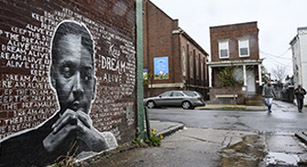(April, 2023)

Hello Friends,
In the summer of 2020, we were overcome by feelings of hopelessness. In the wake of the murders of George Floyd, Ahmaud Abery, Breonna Taylor, the Founders of Reparation Generation, eleven Black and seven white Americans, came together to acknowledge, reflect, debate, and chart a new path, from problem to possibility. Our mission is to advocate for the day when federally funded reparations for Black American descendants of chattel slavery is realized; but, we are not waiting, we are modeling programs of “reparations in real time” that can help inform and advance the reparations movement.
Rep Gen launched our first Pilot Program on November 1, 2021 in Detroit to Black Americans that were buying a primary residence in any of the three counties that comprise Metro Detroit. There were ten $25,0000 Reparative Transfers available. Applications were submitted through our website, and applicants learned the steps and process. Within a very short period, we were fully subscribed. Applicants went through the Rep Gen home buying processes. Some applicants did not complete the process, and then new applicants were started. At the end of eight months, six applicants were able to buy their new home and receive a Reparative Transfer Grant. Yet, we were observing that for all applicants the program and the act of home buying was not easy. Based on the information garnered, in the early fall of 2022, the Pilot Project was paused, and the 4 remaining grants were set-aside for future Grants. Rep Gen then commenced looking at information gathered by Tasha, the operations staff, and information from Rep Gen’s evaluation Team of Karen Hughes, MPH and Erika Weissinger, PhD. Through written and interview evaluation tools, Grantees and Applicants were able to describe their experience of the program and we could measure this against our intent and core values. After lots of discussions and efforts, Reparation Generation has made important iterative changes to the program, and modifications, include providing additional time, the addition of a team of outside volunteer realtors and advisors to “coach” applicants, and providing trained genealogical support to help document ancestry and facilitate healing from lost identity. We are happy to announce we are planning to reopen the Reparative Grant Program in 2023 once the full program improvements are made. We will keep you posted in our newsletter announcements and various media outlets. Stay tuned.
David Mayer, Co-chair
